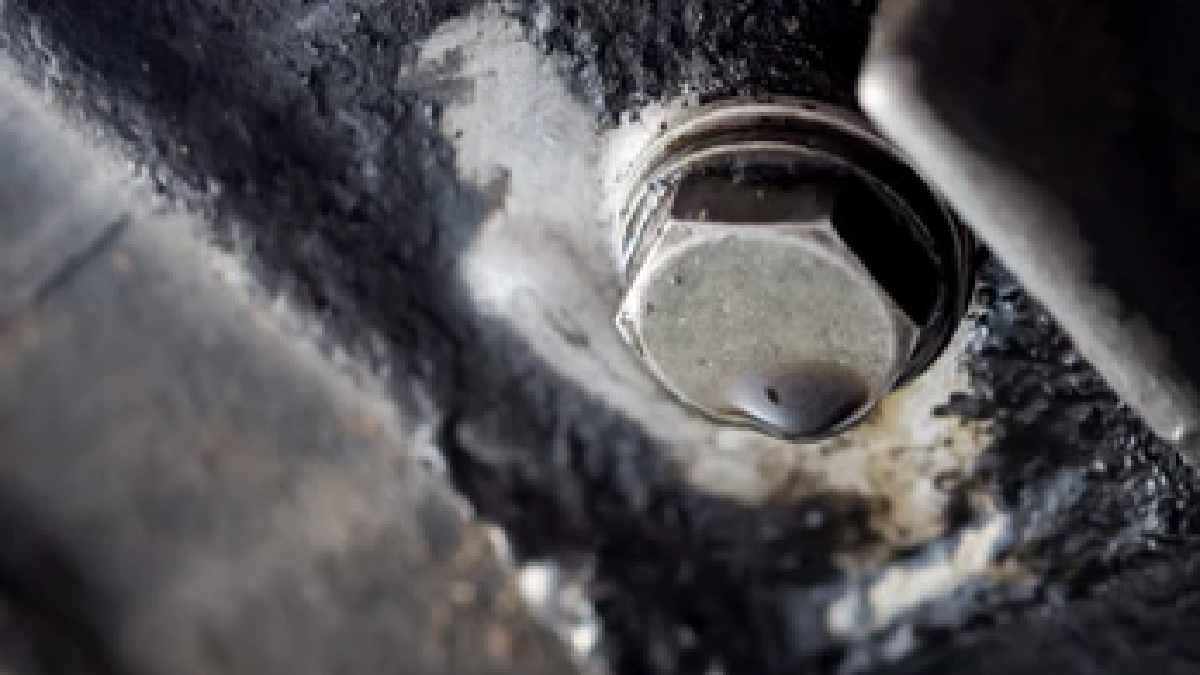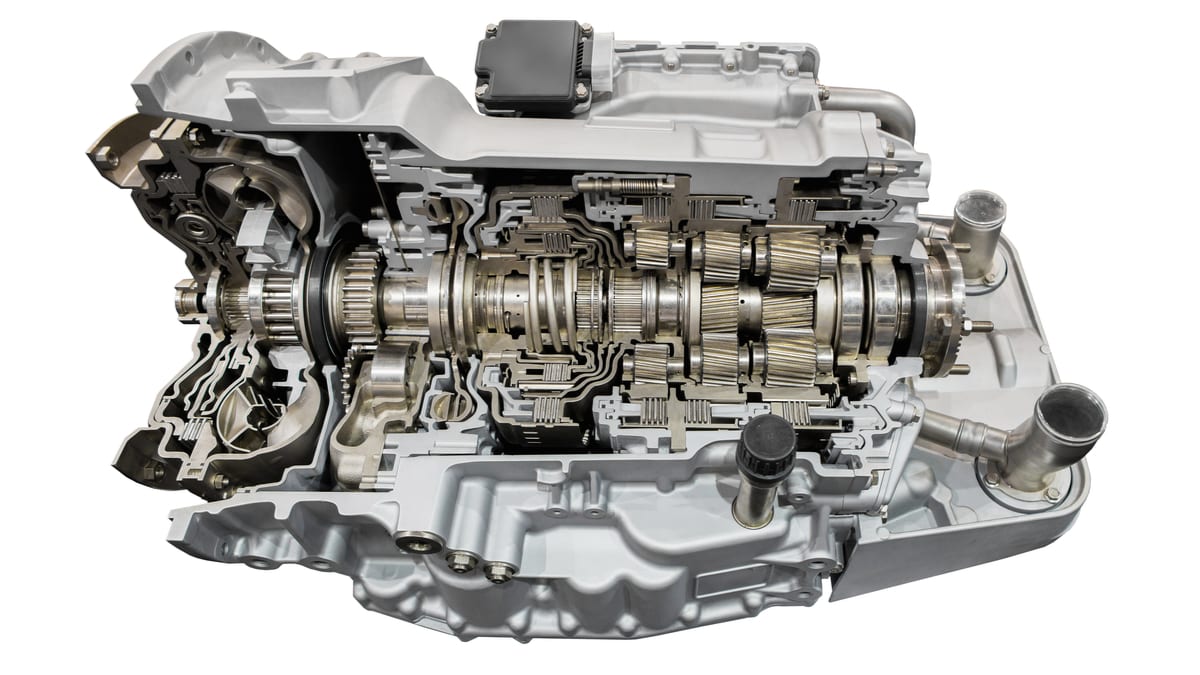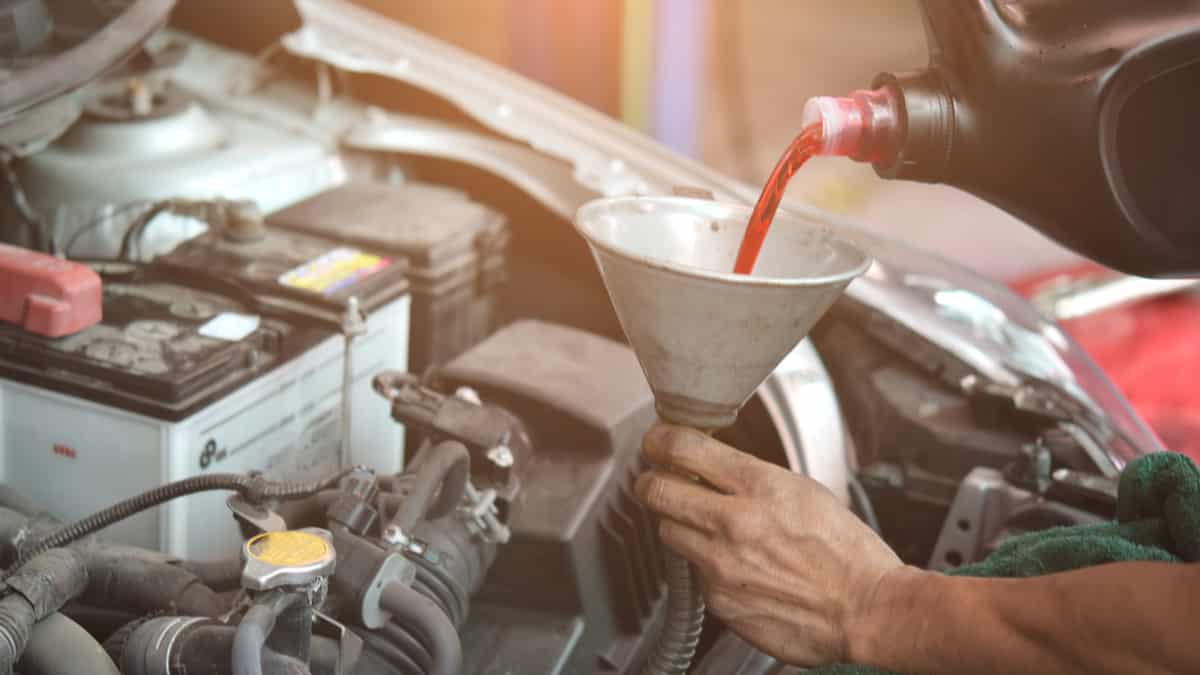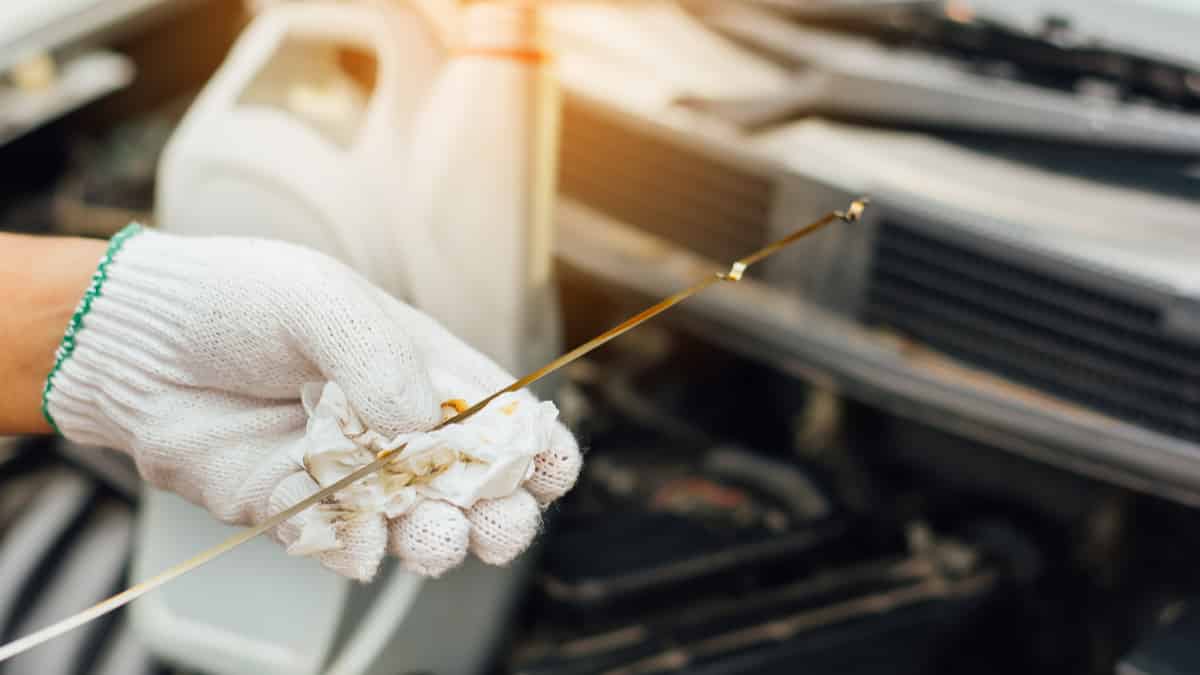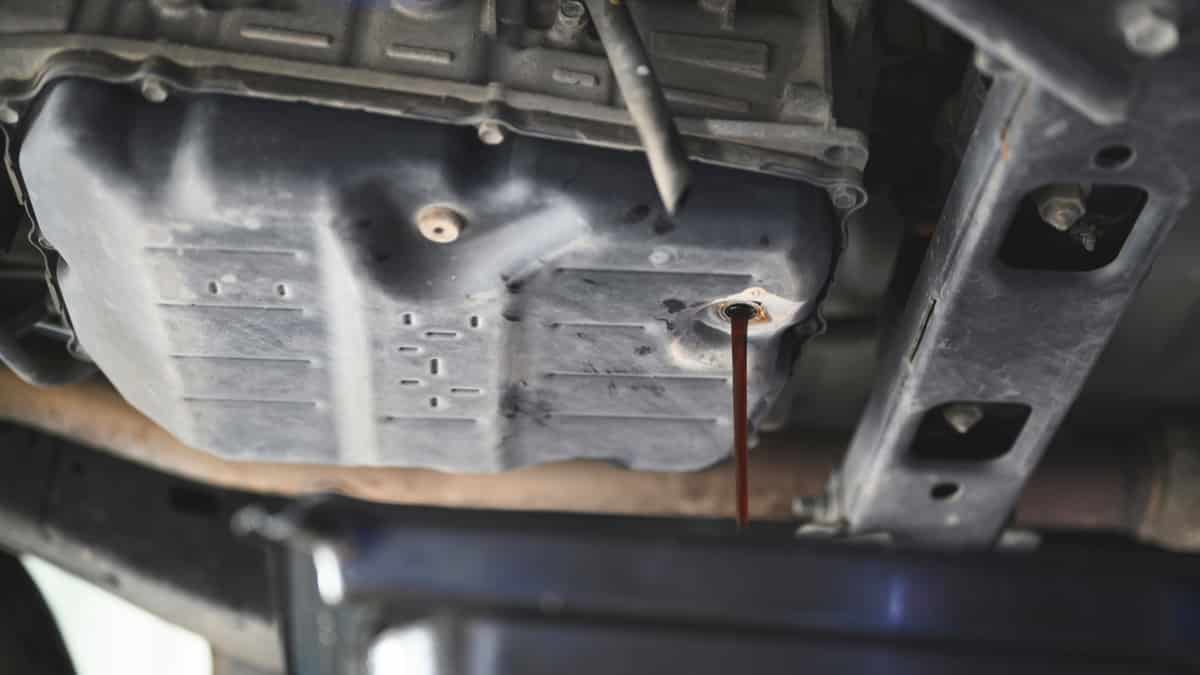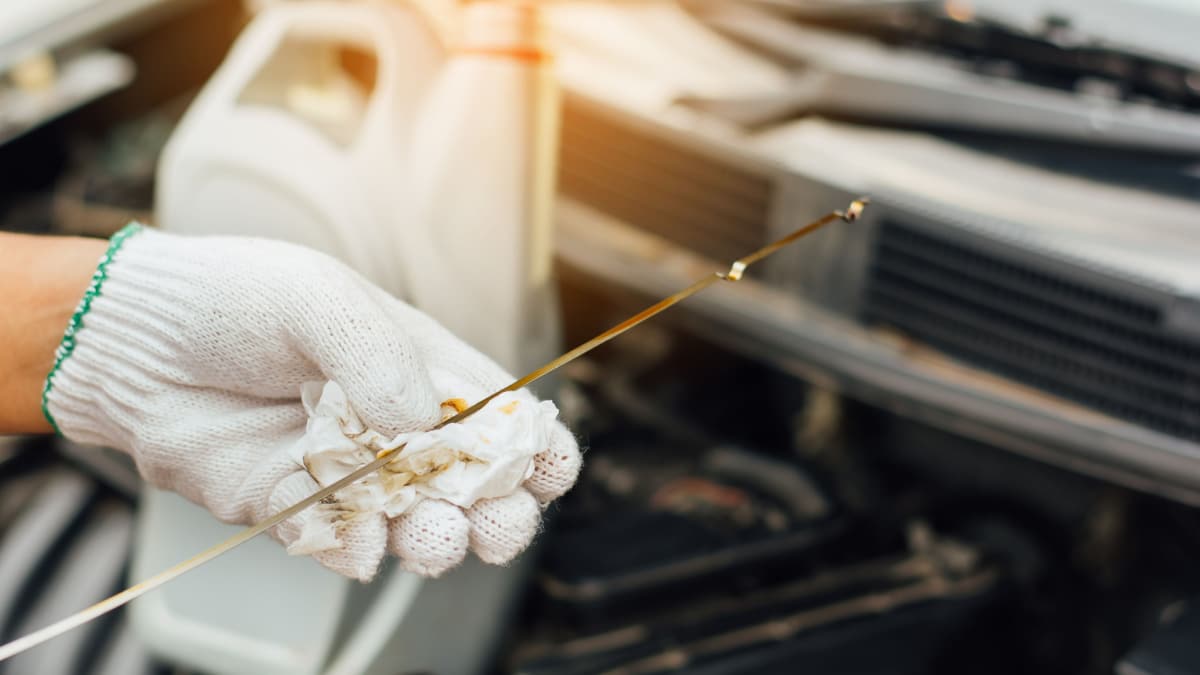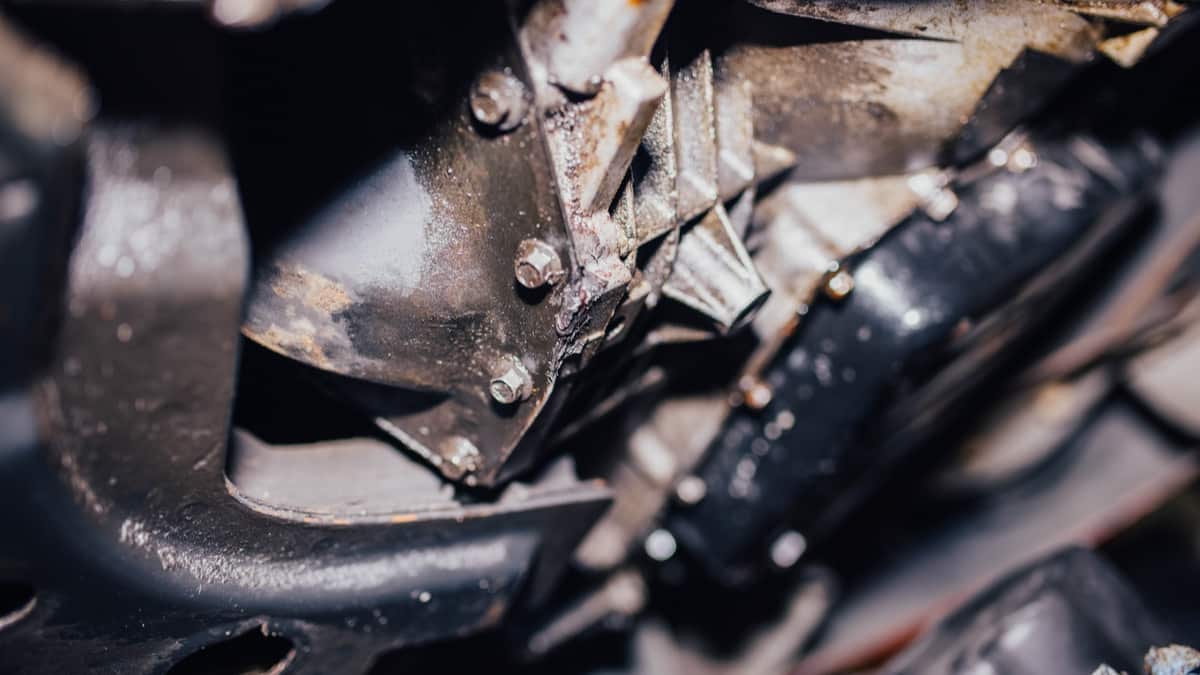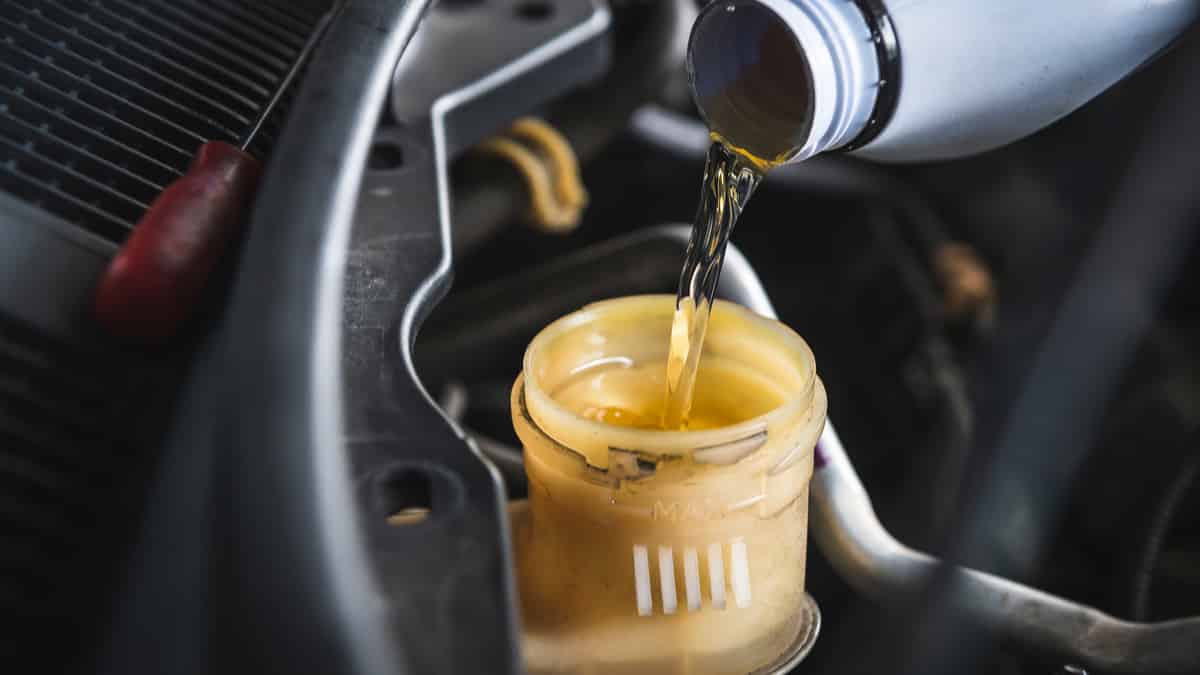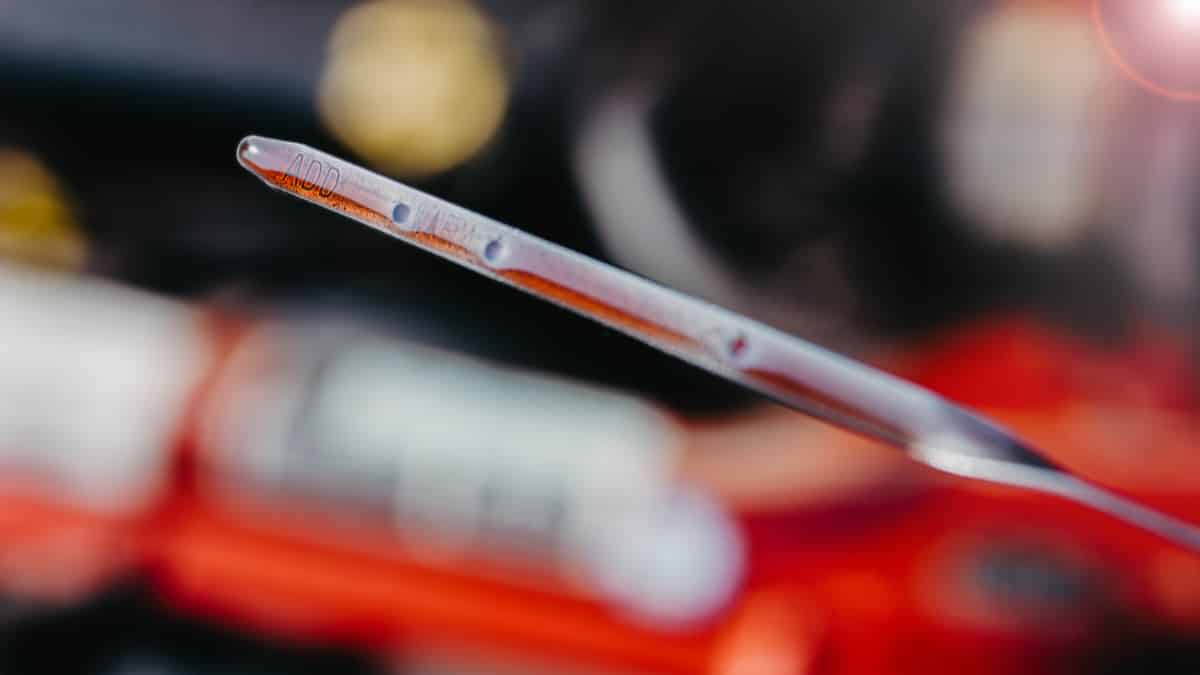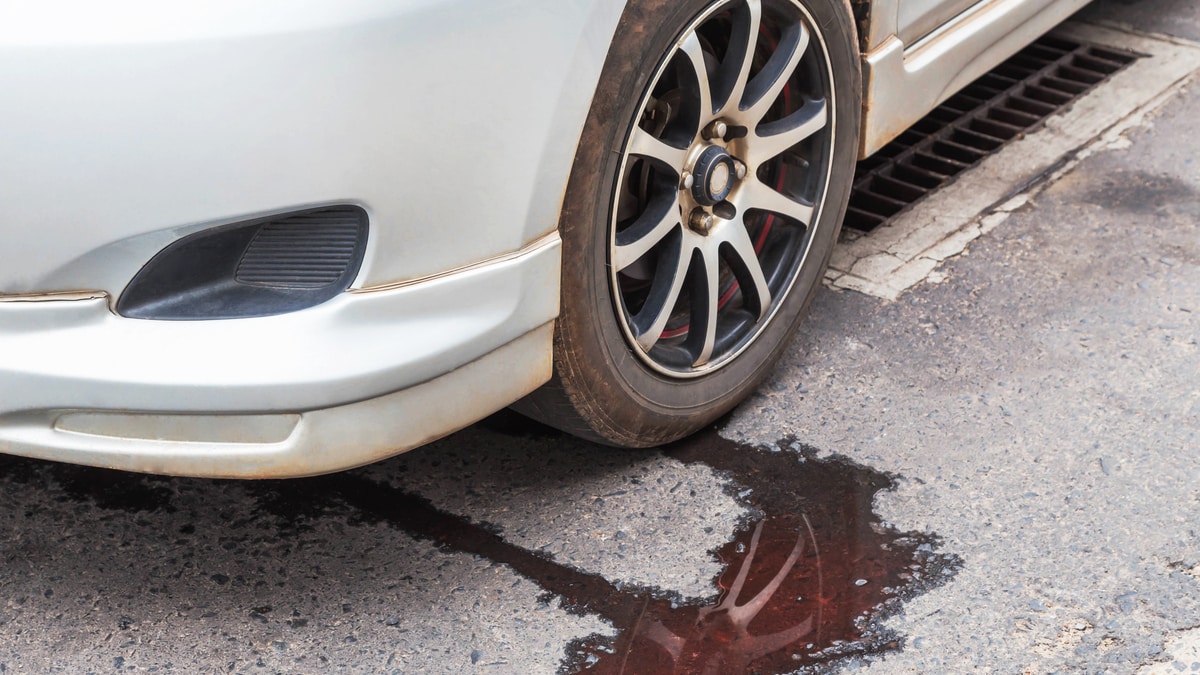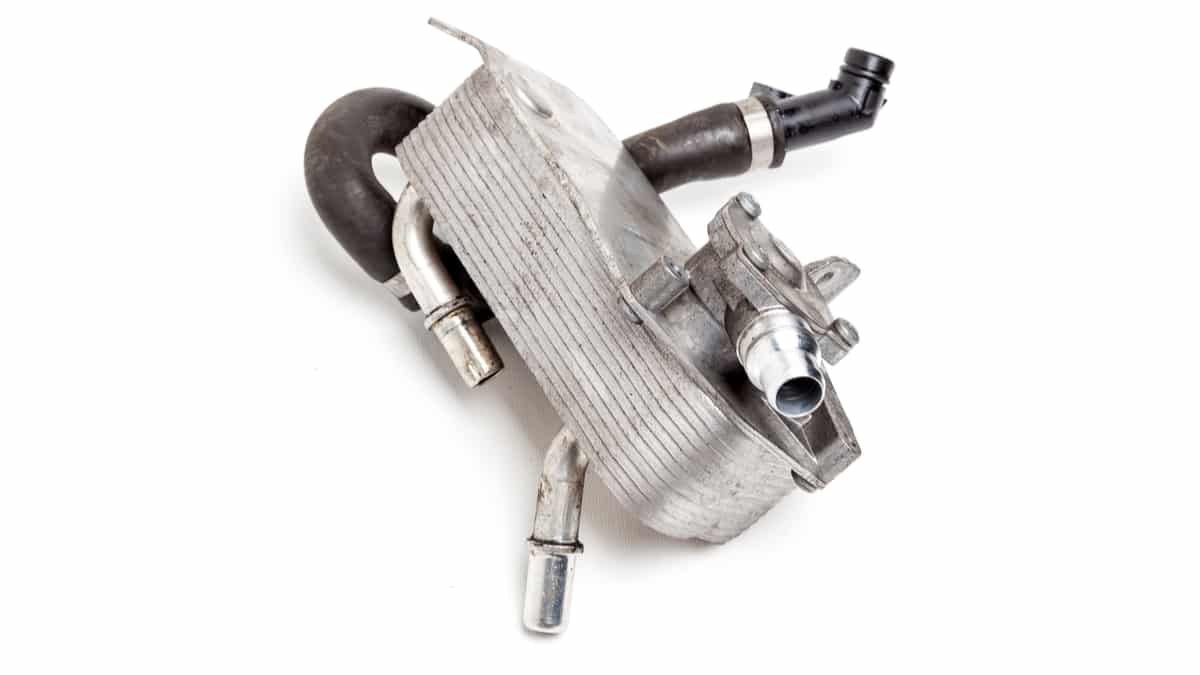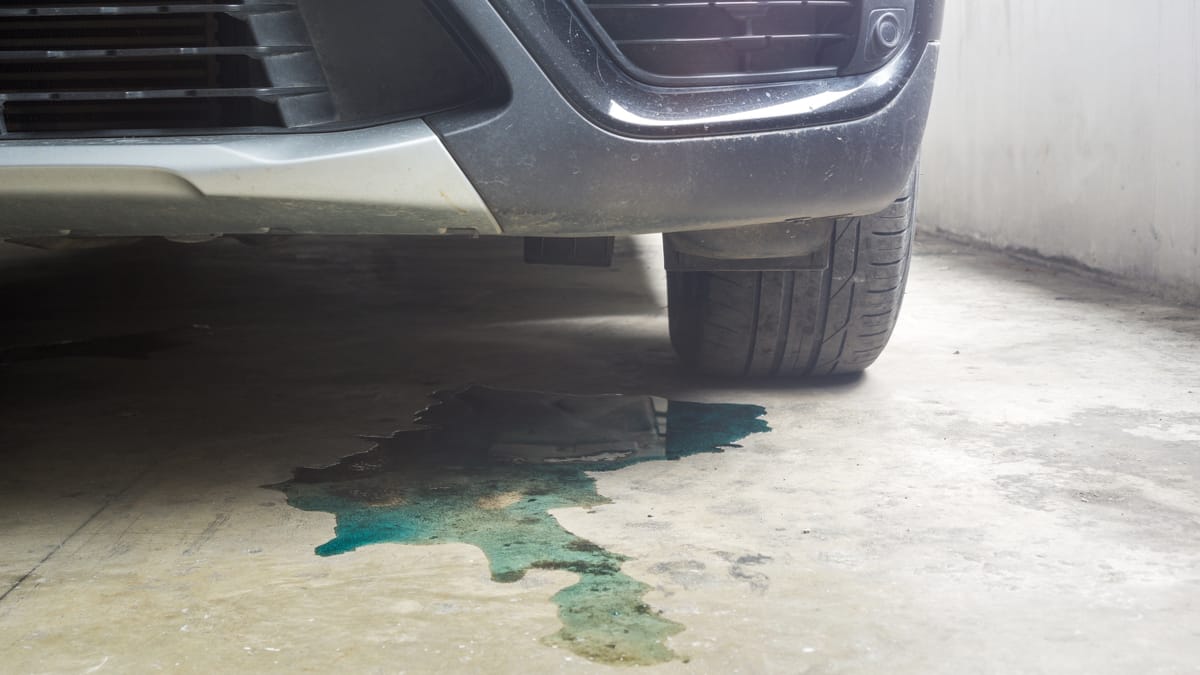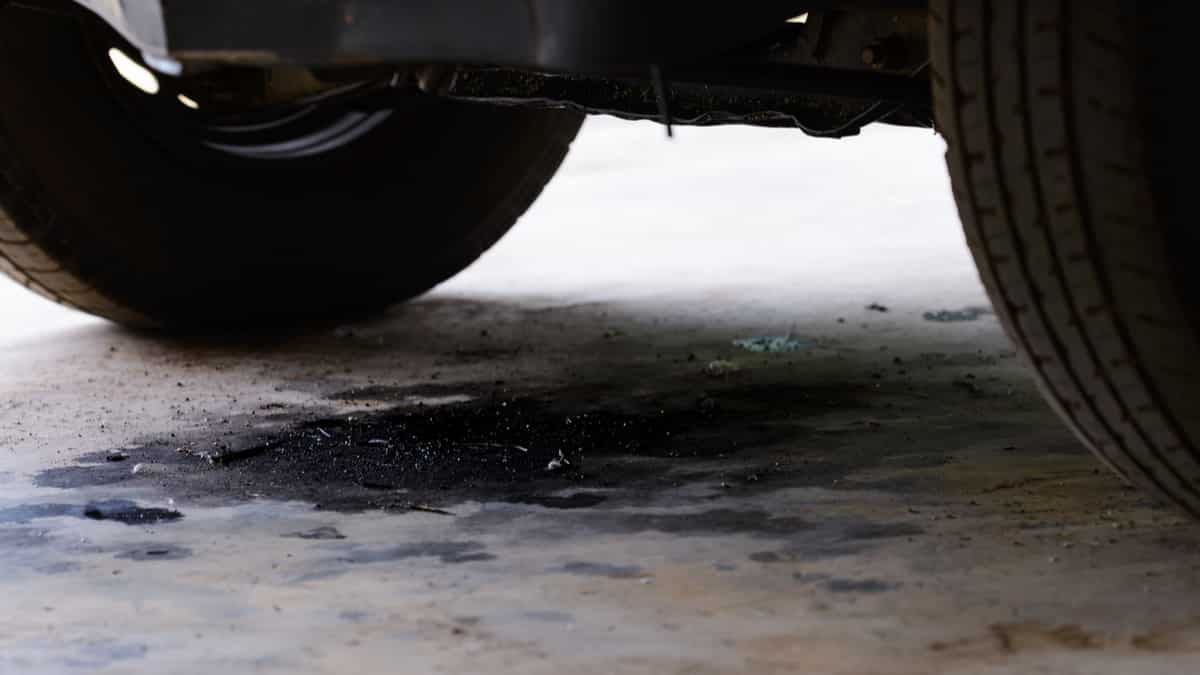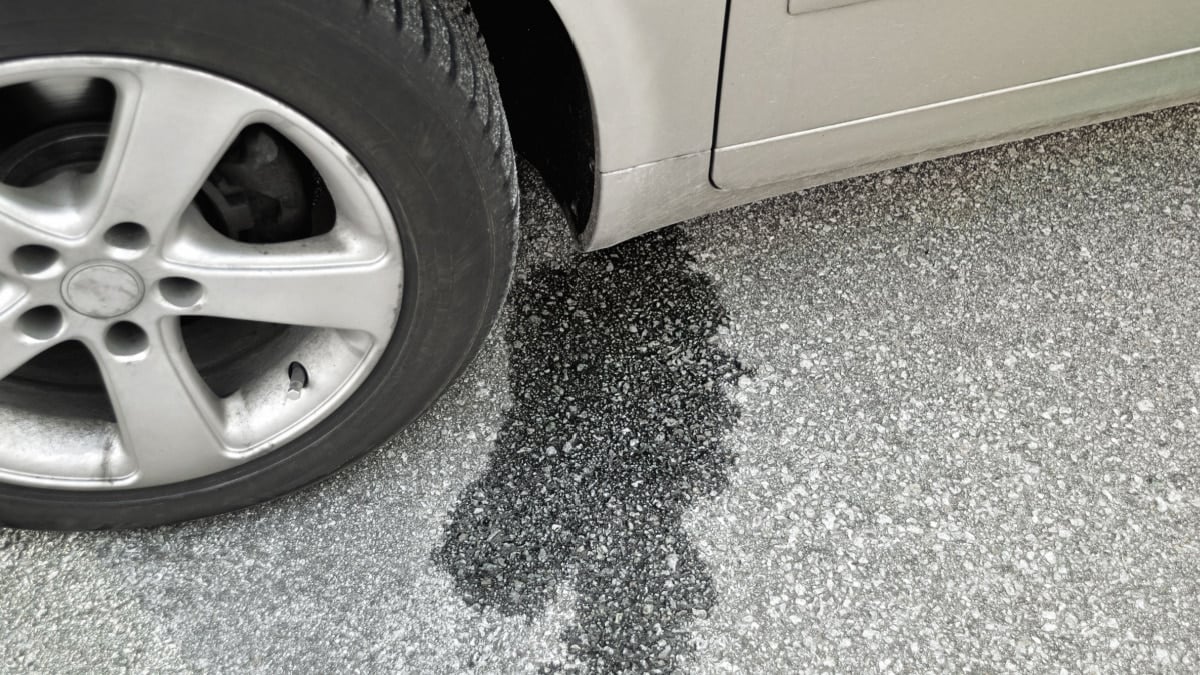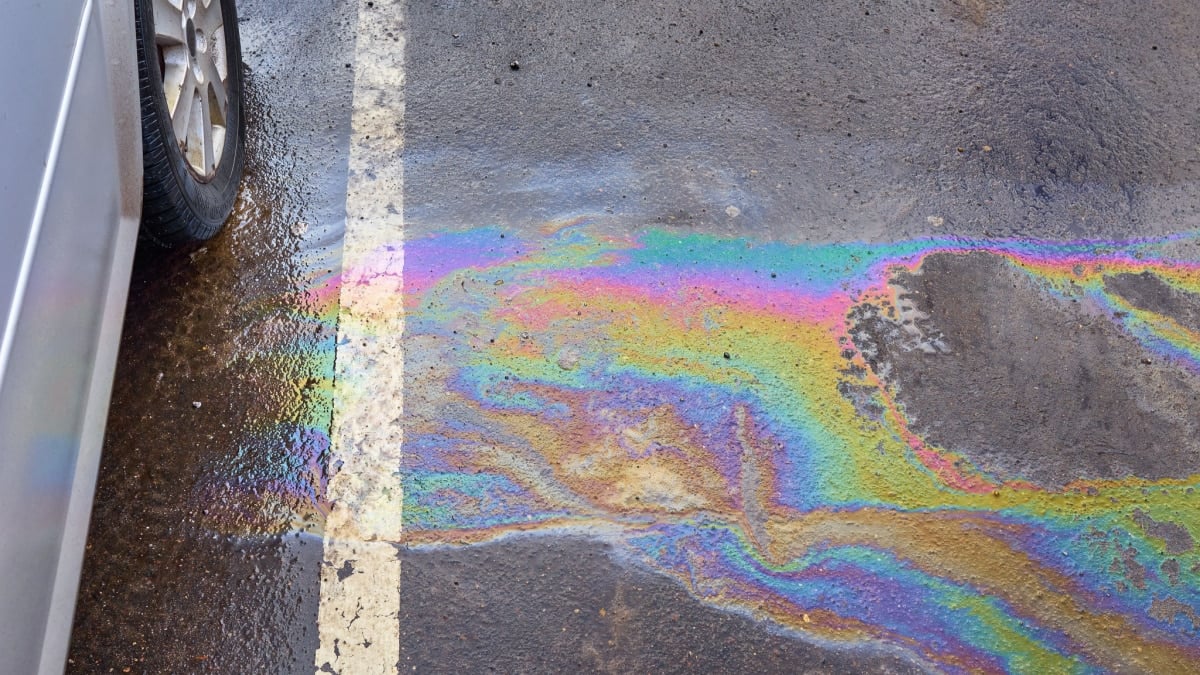Have you spotted a stain of dark red fluid underneath your vehicle after it has been parked? This fluid leak can be alarming, but it might be an easy fix. That’s why it’s important to know what caused the transmission fluid leak when parked and how to repair it.
I cover these top problems so you can get the situation resolved. I also show you how to prevent transmission fluid leaks.
Causes of Transmission Fluid Leak When Parked
A transmission fluid leak when parked can come from a damaged pan or faulty drain plug. It’s also possible that a gasket or seal is damaged. Transmission leaks can also come from a broken line or the torque converter. Proper diagnosis is needed to make the correct repair.
Here is a more detailed list of the most common causes why your transmission is leaking fluid when parked:
1. Damaged Pan
It’s very possible that the problem comes back to a damaged transmission pan. Over time, holes or loose bolts can occur, leaving a place where fluid can flow through.
The best way to prevent this problem is to regularly inspect the pan and its gasket position. A good time to do this is when you perform a fluid change. Look for any rust and ensure the rust didn’t go through the pan and create a hole.
2. Faulty Drain Plug
If you don’t tighten the drain plug completely after a transmission fluid change, it could leak. The same can occur if you over-tighten it, which is why you must secure it only to factory specifications. You also want to ensure that the drain plug o-ring is not bad.
This is also the reason why you should be careful where you have the transmission fluid changed. It might seem wise to save money by going to entry-level mechanics, but they are more likely to strip the drain plug than an experienced mechanic.
3. Damaged Gasket
On most car models, there is a gasket between the transmission and the transmission pan that will leak when the car is parked because when the engine is not running, the transmission fluid level will increase.
The gaskets working in the system can fail after long exposure to heat. It’s also possible that the gasket wasn’t been aligned correctly when it was installed. Either way, it’s common to see a leak coming from the gasket area.
By fixing this issue immediately, you can prevent further problems from occurring. Otherwise, the consistent leak and lack of fluid can lead to expensive transmission repairs.
RELATED: 6 Causes of Transmission Fluid Leaks (& Repair Cost)
4. Worn-Out Seals
The automatic transmission contains various seals meant to keep the fluid where it belongs. However, the seals can crack and degrade, especially after many years of exposure to heat.
You can find seals at the input and output shafts. There are also seals regularly located around the speedometer input, tail housin,g and shifter housing.
5. Broken Line
The transmission system is made up of many lines transporting fluid where it belongs. Most of the lines are designed to hold up after many years of use, whether they are constructed from steel or aluminum.
However, a line can crack or break at any time. If the line were to break, a fluid leak would become evident, plus the system would be low on fluid, leading to bigger problems.
6. Faulty Torque Converter
The torque converter is responsible for pushing fluid through the system. It’s the component necessary for transferring power from the engine to the wheels.
If the torque converter sustains a crack or damage, leakage can occur. The leak can also come from defective needle bearings, which also require the need for a new torque converter.
RELATED: 6 Symptoms of a Bad Torque Converter (& Replacement Cost)
Symptoms of Transmission Fluid Leak
1. Leak Under Car
The most obvious symptom of a leak is a puddle of fluid below the car. If the car is leaking transmission fluid, the puddle will usually be dark red. However, there are other fluid types, so don’t rule it out if it’s not red.
In the same regard, you can’t assume all red fluid is from the transmission. Power steering fluid is another type that is usually red.
2. Lagging Acceleration
Transmission fluid is required to help the engine work with the wheels cohesively. If the fluid starts running low, you might notice some lag during acceleration.
This delay comes when the fluid can’t reach its proper location fast enough. As the fluid level gets lower, you will have more trouble accelerating.
3. Grinding Gears
There are many reasons why the gears could grind in your transmission. However, you don’t want to overlook the possibility that you just need to add some fluid.
If there’s not enough lubrication in the gears, they will grind as they touch one another. Don’t allow the gears to grind, or major transmission damage can occur.
4. More Heat Expelled
It’s not uncommon for the transmission system to eliminate some heat that’s noticeable. The problem comes in when you notice an excessive amount of heat pouring off of the transmission. To prevent further damage, you want to shut down the car and figure out if the transmission requires more fluid.
You may also smell something burning as the transmission heats up. This problem could stem from an overheating engine and the presence of leaking fluid combined.
5. Vibration/Noise
When the fluid level gets low, you are going to see some unusual vibrations occurring, especially when shifting gears. What might have been a smooth operation at one time now creates a driving situation that’s unenjoyable.
You could also hear some strange clunking noises. With either instance, it’s important to have the transmission looked at right away.
RELATED: How Much Does a Transmission Fluid Change Cost?
Prevent Transmission Fluid Leaks
1. Check/Change Fluids
By checking the fluid, you aren’t going to prevent a leak. However, this is one of the most important tasks to ensure a healthy transmission system. Problems start to occur when the fluid gets low, but you can prevent those major issues by keeping the system topped off.
Additionally, you want to check on the quality of the fluid. Once it becomes contaminated, it can no longer provide proper lubrication, which could cause failure and a leak. That’s why you should follow the transmission fluid change recommendations set out by the manufacturer. With these two steps alone, you could keep your transmission running its best for 200,000 miles or more.
2. Change Driving Habits
It makes a big difference in how you drive your vehicle. If you are stopping and speeding up constantly, you are putting more stress on the transmission. Stress can lead to transmission damage, which might cause a leak.
If you drive a car with a manual transmission, you have even more to consider. It’s important to know exactly when to change gears. If you shift too early or too late, you put additional pressure on the system, which could also lead to leaks.
3. Repair Problems Immediately
If you notice a transmission leak or other problem, it’s critical that you repair it immediately. The longer problems are allowed to persist, the more trouble you run into.
Whenever the system doesn’t have the right amount of transmission fluid, permanent damage can occur. Considering the average cost for transmission replacement is between $1,500 and $4,000, you can’t afford to neglect the care of this vital car part. If you are unsure how to resolve the problem, pay a little extra to have a professional mechanic take a look at it.
Where do transmission fluid leaks most commonly occur?
Transmission fluid leaks mostly occur from the drain plug or a rust hole in the transmission pan. Leaks from the transmission pan gasket or fluid lines are also a common location.
Are transmission leaks easy to fix?
Transmission leaks can be both easy and difficult to fix. If it’s just a leaking pan plug or gasket, it can be a quick and easy fix. However, if there is damage to the transmission that is causing the leak, it can be very expensive and difficult to fix.
How do I know where my transmission is leaking from?
Finding transmission leaks can be difficult because the fluid gets everywhere and makes a mess. The easiest way to find out where your transmission is leaking is to first clean up the fluid and go for a short test drive. Then lift the car up and look again.
Is a small transmission leak bad?
All transmission fluid leaks are bad if you never do anything about it. If it’s only a very small leak, it’s probably not something you need to fix right away, but in the long run, even a small leak can cause damage to both the environment and your car.
RELATED: Rear Main Seal Leak – Symptoms, Causes & Replacement Cost
Categories: Transmission
